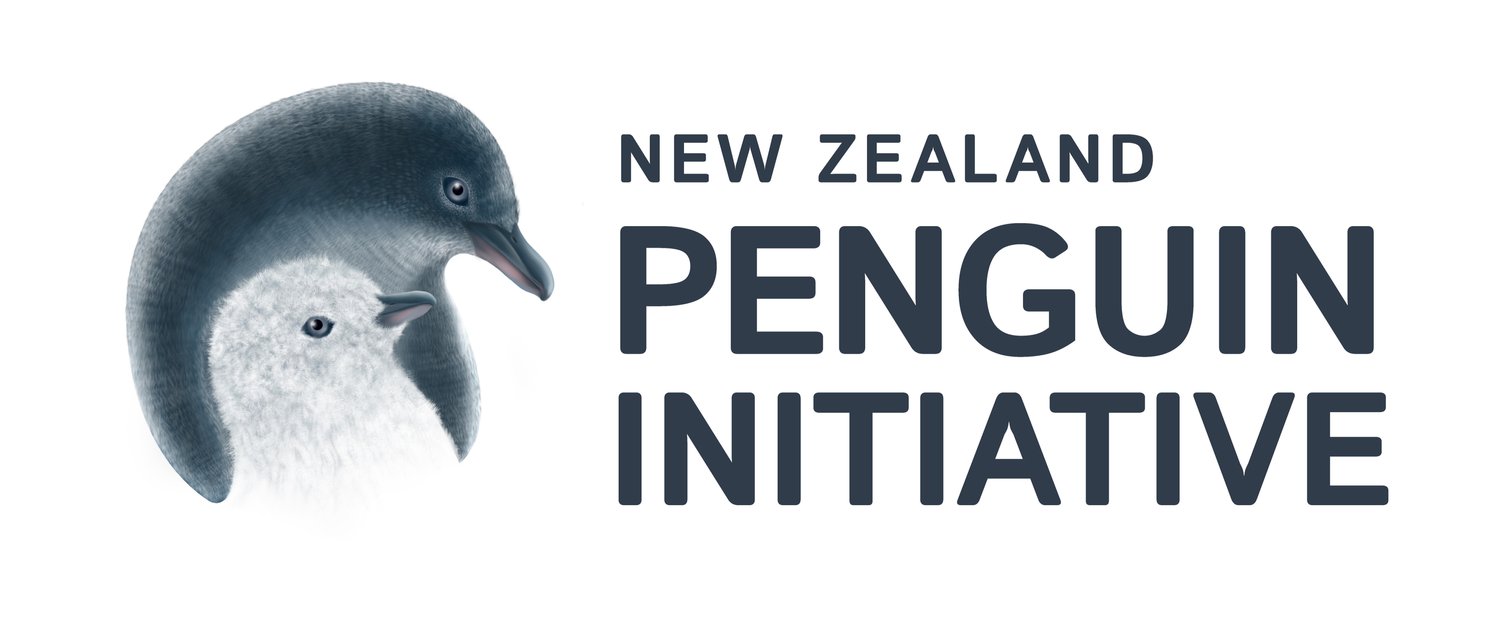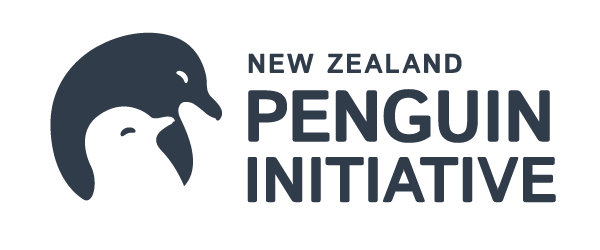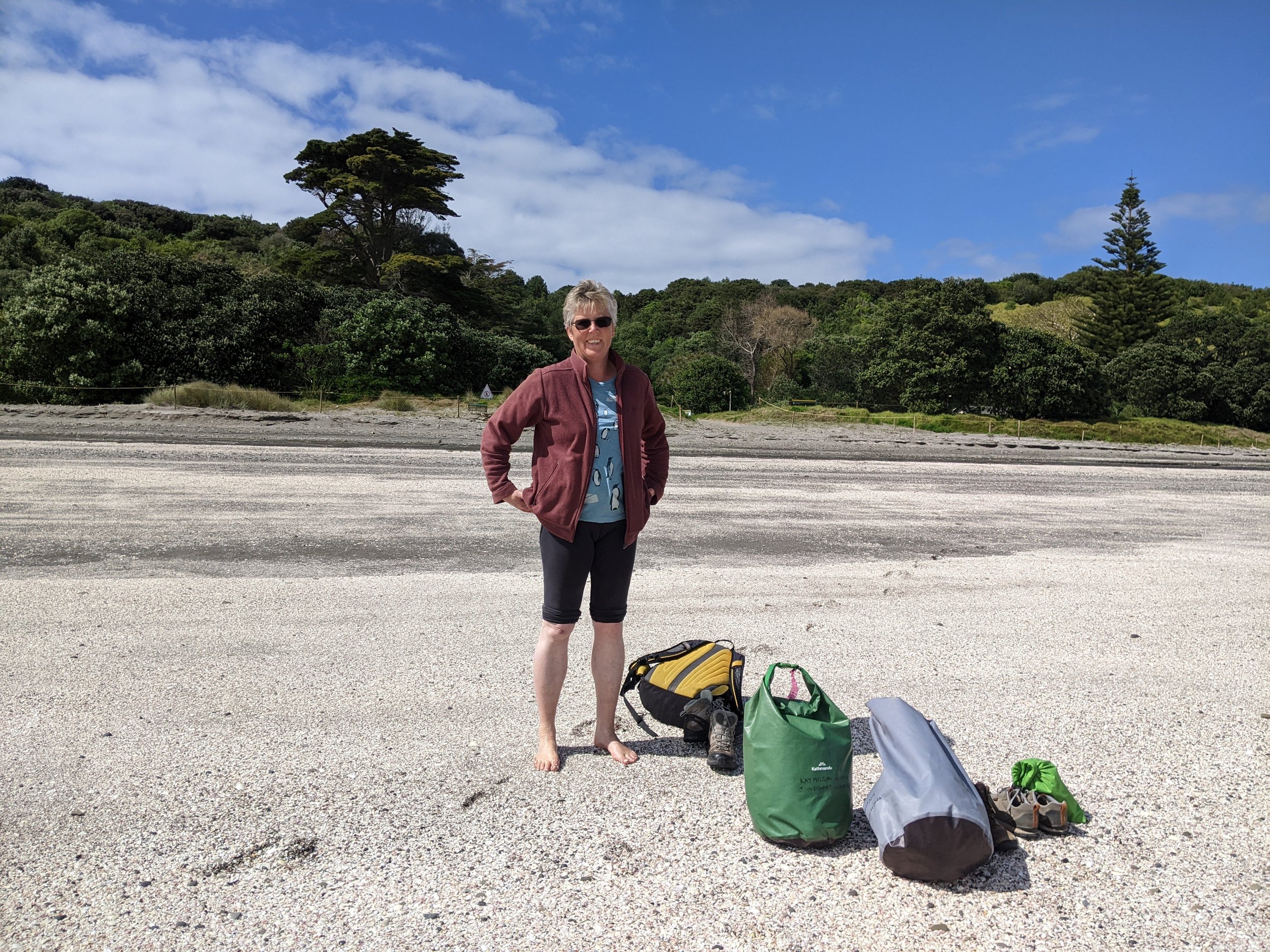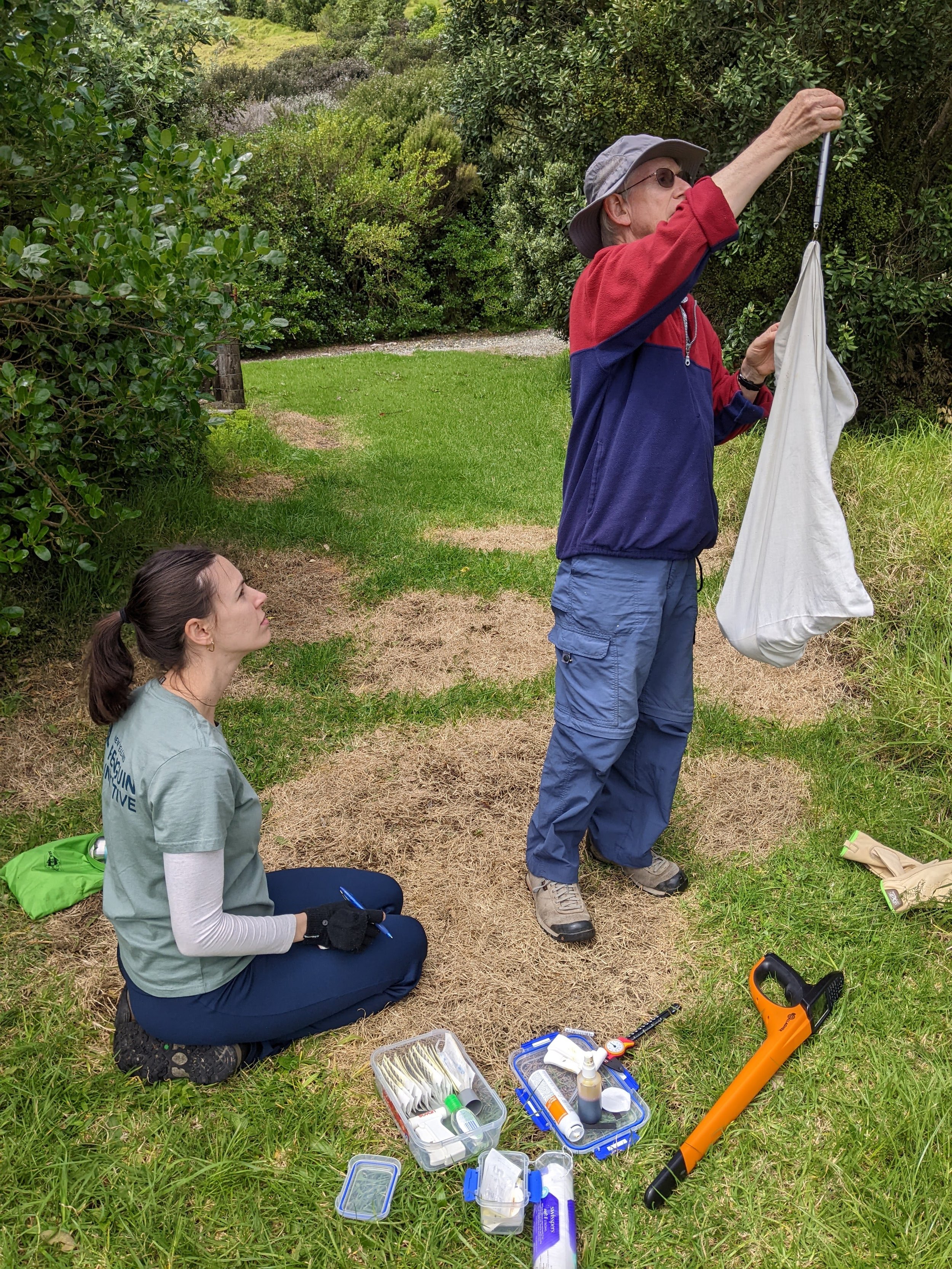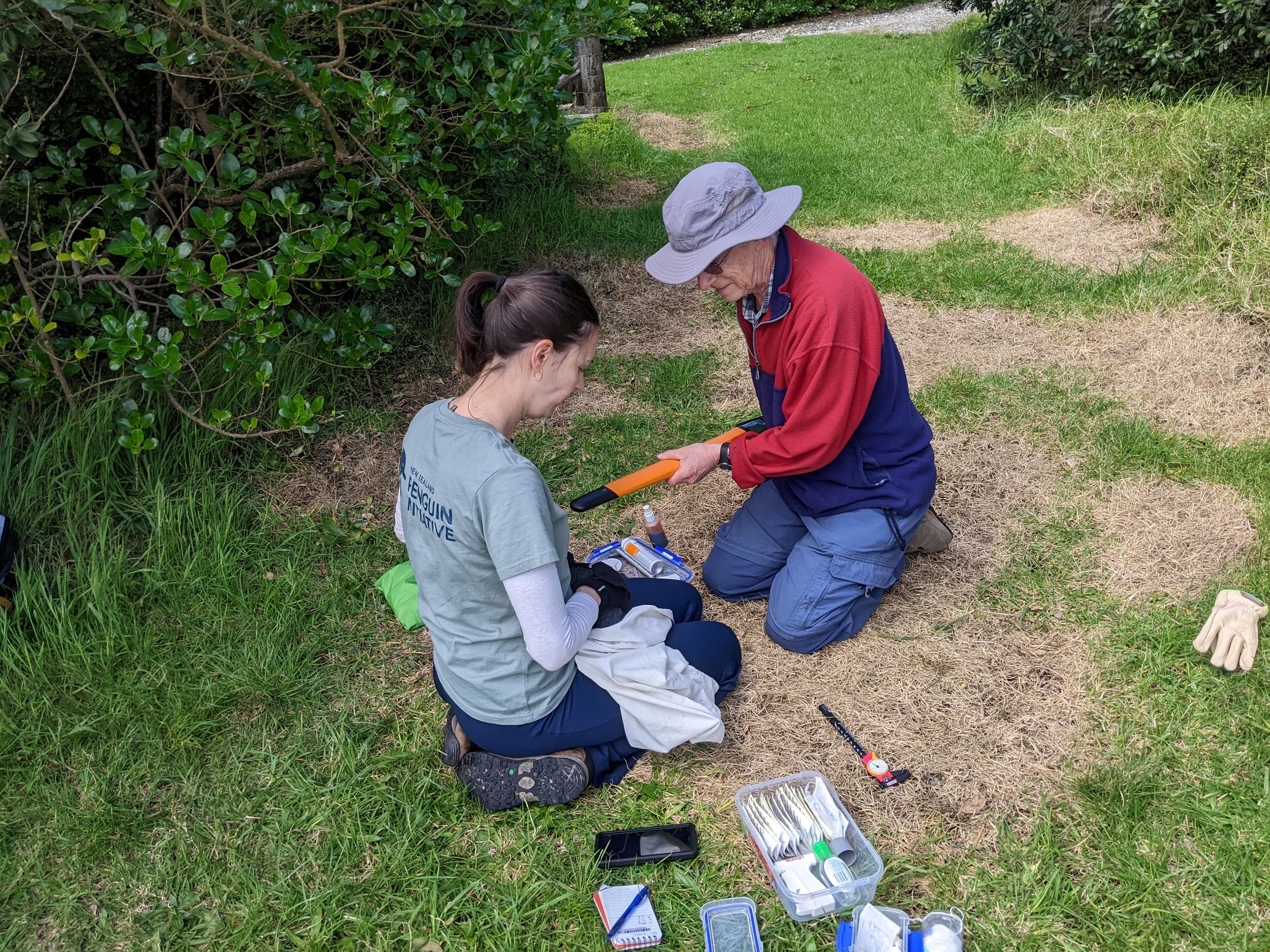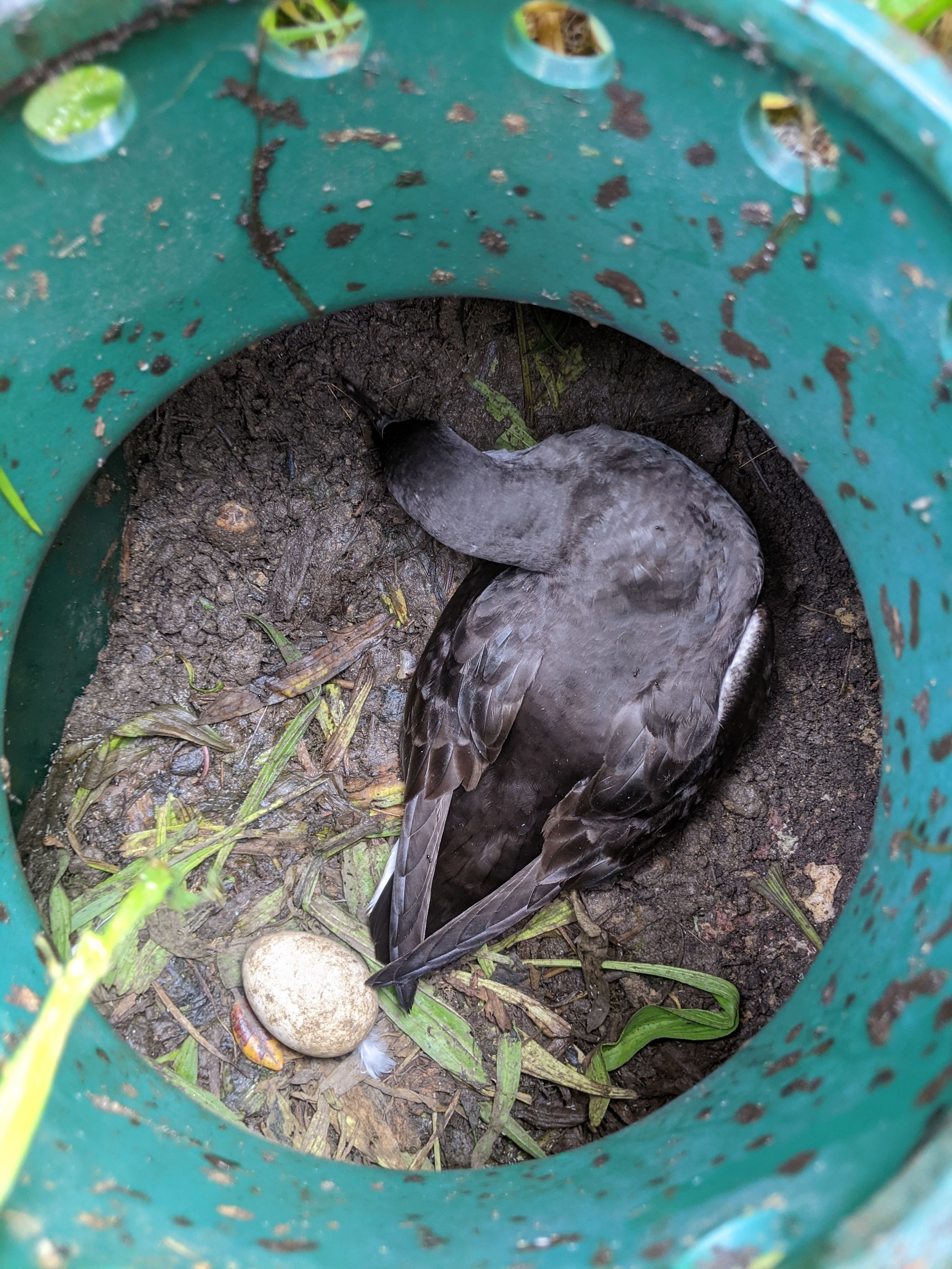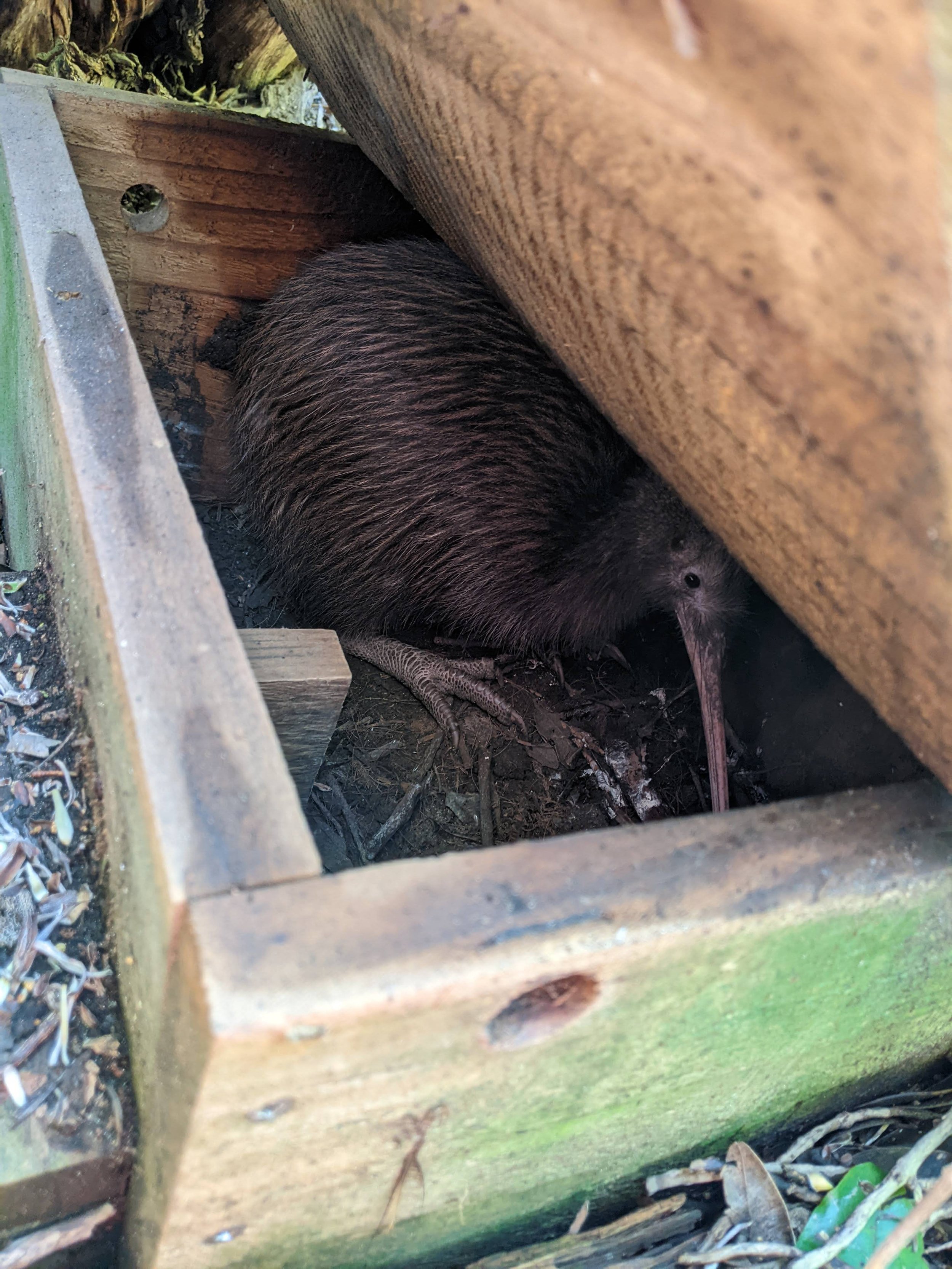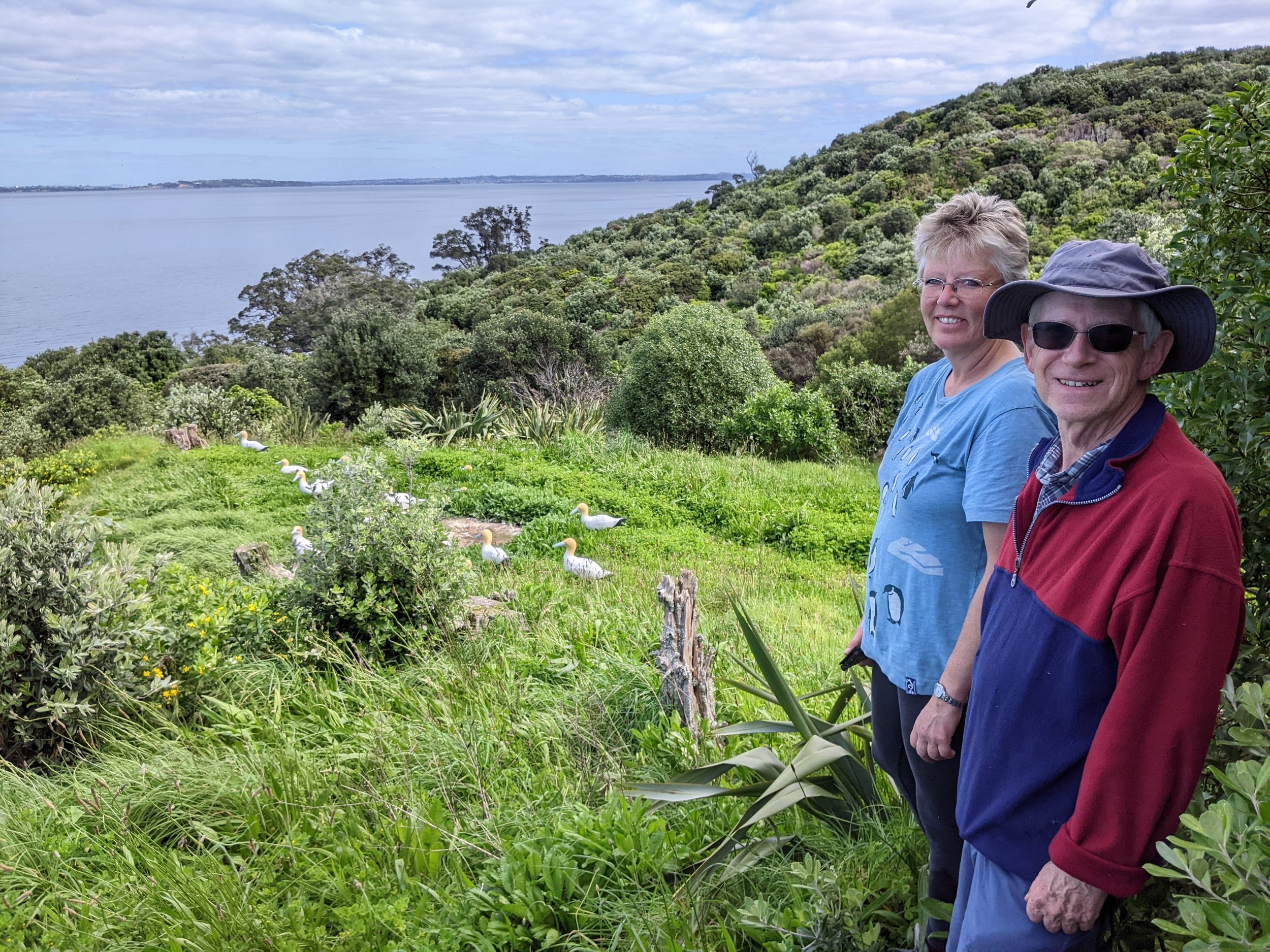NZPI travels North to microchip kororā and train projects’ lead
NZPI recently had the chance to visit penguin conservation groups in the Hauraki Gulf of New Zealand, supporting important training for kororā microchipping certification. Here’s how our trip went.
Kororā colonies on Motuora Island and Tiritiri Matangi Island are monitored by John Stewart and various other volunteers. They were interested in expanding their knowledge and research on kororā population dynamics by identifying individuals, so John approached NZPI to train him on kororā handling and microchipping. John has a vast experience with handling and banding wildlife, and is involved with the translocation and monitoring of many species in these islands. With the appropriate training, he will be able to apply for the certification with DoC’s NZ Bird Banding Scheme to continue microchipping kororā independently.
In early October, NZPI got the chance to visit them to learn about the challenges they’re facing, discover more on how NZPI can support them, and collaborate on joint conservation strategies together. We also supported John’s training, to help him get certification to transponder kororā independently.
The original plan was for Andrea and Hiltrun to arrive on Thursday (6 Oct) in Auckland and meet with John to go by water taxi to Motuora Island and sleep there. Severe weather cancelled and delayed Hiltrun’s flight, and the stormy conditions cancelled the water taxi on Thursday. John was really kind, offering both Andrea and Hiltrun a place to sleep at his house, and providing meals.
Friday was a beautiful, calm day and we caught the water taxi from Sandspit to Motuora, where we met Al, the DoC ranger for the island, and Suzanne. There are 20 nest boxes on the island and six were occupied but only three with adults. The other three had 2-3 week old chicks at post-guard stage. In most boxes, one chick was larger than the other. We microchipped the adults and showed Al and Suzanne how to safely check for nest contents, and how to use the monitoring app for their data. Throughout the day, we were lucky to encounter kiwi in two kororā nest boxes, a small gathering of gannets, and two fluttering shearwater on eggs.
On Saturday, we took the ferry to Tiritiri Matangi, where we checked the 30 boxes there. John micro-chipped another 5 adults. An added bonus was the walk-about on Tiri, where we saw hihi, saddlebacks, kōkako, tuatara and the North Island robin.
There were not enough adults available for microchipping to endorse John for DoC’s certification. To complete his training, Hiltrun needs to return in four weeks to be present during the micro-chipping of the chicks. This should suffice to satisfy the DoC requirements for Level 2 certification.
On Sunday, we travelled to Leigh to meet with the Forest & Bird group there and walked along the coast to view their nest box sites and hear about their efforts. Penguins here live near a popular coastal walk, where dogs are often off lead, which presents a major concern for the nesting kororā. Signs have been put up, and F&B are working on educating the public about the penguins. There are some penguins under the houses on Penguin Street, where residents are delighted and tolerant of the birds. A trap line is maintained at this location.
We also visited Goat Island colony to see the challenges there. We made some suggestions about box placement to improve the chance of them being taken up.
In the evening, the group had organized a potluck dinner for us to meet with more group members and answer any questions they might have. Hiltrun gave a short presentation about NZPI’s work and we talked about data capturing and data management.
On Monday morning, we met with Jenny, Tony and Sue at Ti Point to walk around the coast to check on nest boxes and trail cameras while talking about the challenges there trying to find where the penguins are. The coast is rugged and in parts vegetated making it difficult to locate any place where the penguins might be coming ashore. There is also a coastal walk that is frequented by dog walkers. A trap line is also maintained at this location.
At lunch time we travelled back to Auckland airport, delivered the rental car, and flew to Wellington.
On Tuesday, Andrea and Hiltrun met at the office around lunch time and then visited the NIWA penguin colony where four penguins were found without micro-chips.
